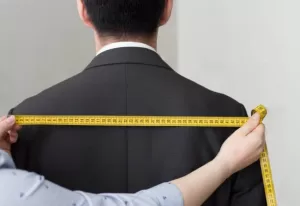
Introduction to Mindfulness for Elite Performance
In the high-pressure world of elite sports, where a fraction of a second can define a career, the adoption of mental training strategies is as pivotal as physical conditioning. Mindfulness, in particular, has emerged as a cornerstone of psychological resilience and focus for superior athletes. As a seasoned professional in this field, I aim to elucidate the ways in which mindfulness can elevate one’s performance by bolstering cognitive and emotional functions.
Understanding Mindfulness in High-Stakes Environments
– **Defining Mindfulness**: At its essence, mindfulness is the practice of being intensely aware of what you’re sensing and feeling at every moment, without interpretation or judgment. In sporting contexts, this translates to a heightened focus on the present game, movement, or play, steering clear of distractions from the past or concerns about the future.
– **Execution Under Pressure**: For athletes and individuals in high-pressure situations, mindfulness training hones their ability to perform with composure. It fosters an environment within which they can respond to stress with equanimity, thus facilitating optimal decision-making and precision.
– **Awareness and Acceptance**: Central to mindfulness is learning to observe thoughts and emotions without being overwhelmed. This ability is crucial for competitors who must maintain their poise in the face of both success and adversity.
Benefits of Mindfulness Practices for Elite Individuals
– **Enhanced Concentration**: Mindfulness practices train individuals to return their focus to the present task, which is crucial during competition. Athletes often report improved levels of concentration and a more consistent performance after engaging in regular mindfulness practices.
– **Emotional Regulation**: Managing emotions effectively can spell the difference between victory and loss. Mindfulness equips athletes with the skills to remain level-headed, ensuring emotions serve performance rather than detract from it.
– **Stress Reduction**: High levels of stress can erode performance. Athletes practicing mindfulness report lower levels of stress as they are better able to manage internal and external pressures.
– **Recovery Time**: Mindfulness can accelerate psychological recovery by promoting a non-judgmental acceptance of the present moment, whether recovering from injury, defeat, or exhaustion.
– **Clarity of Thought**: Athlete decisions need to be made quickly and often under considerable pressure. Mindfulness clears the mental fog, paving the way for clearer, more decisive action.
By incorporating mindfulness into their training regimen, elite athletes can access a powerful tool for enhancing their performance. This practice isn’t about change per se; it’s about better utilizing the inherent resources within oneself—focus, clarity, poise—to meet the demands of high-stakes situations head-on. Mindfulness isn’t the sole answer to the multifaceted puzzle of elite performance, but it is becoming clear that it is one of the most crucial pieces.
Mindfulness Training in US Special Forces
Overview of Recent Mindfulness Study on Elite Forces
The use of mindfulness techniques among elite performers has grown significantly in recent years, and this includes the military. In a recent study undertaken by the Center for Greater Good at Berkeley, the profound impact of mindfulness on the performance and mental health of US Special Forces was explored. The research aimed to understand how mindfulness practice could enhance the cognitive and emotional resilience of soldiers who operate in high-stress environments regularly.
– **Design of the Study**:
– Participants from various ranks within the Special Forces were included.
– A systematic introduction to mindfulness practices was established.
– Regular sessions were incorporated into their training regimen.
– Assessments were scheduled before, during, and after the mindfulness training to evaluate effects.
– **Mindfulness Techniques Used**:
– Meditation sessions focusing on breath and body awareness.
– Exercises to cultivate presence in the current moment.
– Training in accepting thoughts and feelings without judgment.
– **Duration and Consistency**:
– The program lasted several months, acknowledging that mindfulness is a skill that develops with practice.
– Sessions were scheduled with enough frequency to encourage the development of a mindfulness habit among the soldiers.
Impact of Mindfulness Training on Special Forces Performance
As one might anticipate, the mindfulness program had a significant impact on the performance and wellbeing of the soldiers involved in the study. The benefits were multifaceted, permeating both the professional duties and personal lives of the participants.
– **Enhanced Focus and Concentration**:
– Individual soldiers reported improved ability to concentrate on tasks at hand.
– They experienced less distractibility, even in chaotic or high-pressure scenarios.
– **Increased Stress Resilience**:
– Mindfulness practice helped soldiers in managing stress more effectively.
– There was a notable decrease in stress-related symptoms and an enhanced recovery from stressors.
– **Improved Decision Making**:
– With greater clarity of thought, there was a rise in the quality of decisions made under pressure.
– Mistakes due to panic or poor judgment were reduced.
– **Emotional Regulation**:
– Soldiers found themselves better equipped to handle emotional challenges.
– Instances of anger and frustration were managed with more composure.
– **Quality of Sleep**:
– A surprising yet significant improvement was reported in sleep quality, vital for recovery and performance.
– **Team Dynamics**:
– Enhanced mindfulness contributed to better communication and cooperation among team members.
– A strengthening of team cohesion was feedback that resonated from the group.
– **Feedback from Elite Forces**:
– Reports from participants indicated an overall positive reception of mindfulness training.
– Many intended to maintain the practice even after the study concluded.
It’s interesting to note that these findings echo the age-old wisdom of mindfulness, cementing its relevance in contemporary high-performance domains such as the US Special Forces. While the practice originates from ancient traditions, its applications today prove its timeless benefits, particularly in promoting mental health in professions where the stakes are extraordinarily high.
The Edge in Competition: Mindfulness for Athletes
How Mindfulness and Athletic Performance Intersect
In my own journey as a high-performing athlete, I have discovered firsthand the profound impact that mindfulness has on athletic performance. The integration of mindfulness into sports practices aligns perfectly with the core skills necessary for excellence in any athletic endeavor. Let me elucidate how these principles apply within the context of competitive sports.
– **The Zen of Clutch Moments**: In the clutch seconds of a game, the ability to remain calm under pressure is what separates the good from the exceptional. Through mindfulness, one cultivates focus and the ability to stay rooted in the present, eliminating distractions that may hinder critical gameplay.
– **Consistency in Performance**: A regular mindfulness practice helps in maintaining a level of performance that is reliable and unswayed by shifting circumstances, emotional upheavals, or performance anxiety.
– **Injury Prevention and Recovery**: An increased body awareness allows athletes to become more attuned to their physical state, potentially reducing the risk of injury by recognizing when to rest or adjust technique.
– **Refining the Mental Game**: It’s not just about physical prowess—having the mental edge is equally vital. Mindfulness cultivates mental fortitude, allowing for sharper strategy and decision-making.
– **Staying Process-Oriented**: Success in sports is often about building toward peak performance. Mindfulness reinforces process over outcome, a mindset that encourages consistent development and learning.
Examples of Mindfulness Techniques Used by Top Athletes
As an athlete who practices mindfulness, I draw inspiration from other top sports performers who have incorporated these techniques into their routines. Let me share some of the methods employed by well-known athletes and how they may apply to budding sports enthusiasts:
– **Novak Djokovic’s Mental Clarity**: One of the top tennis players in the world, Novak Djokovic, uses meditation to maintain composure and mental clarity during matches. The finer points of his game undoubtedly benefit from this clear-headed approach.
– **LA Lakers’ Group Cohesion**: Teams like the LA Lakers have collectively practiced mindfulness to enhance focus and team dynamics. This united approach to mindfulness creates a strong on-court connection and may reduce interpersonal tensions within the team.
– **Seattle Seahawks’ Competitive Advantage**: The integration of meditation into training by the Seattle Seahawks has been viewed as giving the team a competitive edge. The emphasis on group mindfulness has translated into improved collective performance and resilience.
– **Kobe Bryant’s Legacy of Focus**: The late, great Kobe Bryant used meditation to cultivate deep focus, allowing him to perform with precision and grace under the shining lights of the NBA.
– **Beach Volleyball Champions’ Resilience**: Misty May-Treanor and Kerri Walsh, both Olympic champions, are reported to have used visualization and mindfulness to stay focused and resilient, irrespective of the high stakes and pressures of competition.
These exceptional athletes illustrate the practicality of mindfulness in attaining peak performance. By observing and incorporating these practices, I am convinced that athletes at all levels can experience not only enhanced performance but also better mental health and a more satisfying athletic journey.
Mindfulness and Acceptance in Sports Psychology
The Role of Acceptance Commitment Therapy (ACT)
During my professional tenure, I’ve seen the concept of mindfulness gain significant traction within the realm of sports psychology. As a sports psychologist, I often employ Acceptance Commitment Therapy (ACT) to enhance the performance of the athletes I work with. The essence of ACT is to foster psychological flexibility, enabling athletes to align their actions closely with their values and goals, while being in harmony with their mental experiences.
Here’s what ACT entails and how I’ve observed it benefits athletes:
– **Focused on Value-Based Actions**: I guide athletes to identify what is genuinely important to them. This insight shapes their commitment to pursuing goals that resonate deeply, rather than being distracted by transient emotions or thoughts.
– **Mindful Behavior**: I teach athletes mindfulness skills to deal with their thoughts and emotions in a non-judgmental manner. This means observing their inner experiences without getting entangled in them, allowing for greater focus on the task.
– **Acceptance of Internal Experiences**: Rather than fighting off negative thoughts, I encourage athletes to approach these thoughts with acceptance. This approach greatly reduces the power of such thoughts to detract from performance.
– **Defusing Cognitive Rigidity**: Part of the therapy includes cognitive defusion techniques, which help athletes look at their thoughts critically, reducing their impact and thus providing psychological space to focus on performance.
– **Commitment to Action**: By clarifying their values, athletes learn to pursue meaningful actions with dedication, even in the face of adversity or distractions.
Enhancing Mental Resilience Through Mindfulness
In my role as a sports psychologist, I’ve discovered the profound benefits of mindfulness for mental resilience. Here’s how mindfulness facilitates peak performance:
– **Enhancing Awareness**: Athletes who engage in mindfulness practice develop a heightened awareness of their body and mind. This awareness allows them to tune into the subtleties of their form and technique as well as monitor their physiological and psychological response to stressors.
– **Regulating Emotional Reactions**: Athletes often face intense pressure situations. Mindfulness equips them with the ability to regulate their emotions and remain even-keeled in the face of setbacks or during high-stakes competition.
– **Staying Present and Process-Oriented**: Mindfulness keeps athletes ‘in the moment.’ By concentrating on the current play, movement or strategy, there’s considerably less room for distraction, which maximizes performance efficiency.
– **Recovery and Rehabilitation**: Athletes injured or in recovery find mindfulness helps in managing pain and adhering to their rehabilitation programs. It reduces the potential for negative mental states that could impede progress.
– **Sustained Performance Under Pressure**: Just as soldiers in the elite forces observed improvements, so too do athletes. The potent combination of focus, clarity and calm rendered by mindfulness practice means athletes perform reliably, regardless of pressure.
Incorporating mindfulness and acceptance strategies within sports psychology isn’t just about achieving short-term performance goals; it’s an investment in the long-term mental health and wellness of athletes. The capacity to train the mind with the same rigor as the body is key for any athlete looking to unlock their full potential.
Insights on Mindfulness in Movements
In my extensive work as a sociologist, I’ve delved deeply into the transformative power of mindfulness across various social movements. The intricate connection between society’s progress and the individual’s inner state has become increasingly evident. Allow me to share my observations and experiences regarding the effectiveness of embodied cultural and spiritual practices.
Effectiveness of Embodied Cultural and Spiritual Practices
My research has revealed that mindfulness and spirituality are not just private, personal experiences but can play a crucial role in social change.
– **Integration within Activism**: I’ve observed that spiritual practices are often integrated into activism. This approach can provide a source of internal strength and maintain the mental health of activists.
– **Sustaining Long-Term Engagement**: Regular mindfulness practice among movement participants builds resilience, helping prevent burnout, which is common in the demanding environment of social activism.
– **Emotional Regulation**: Mindfulness trains activists in emotional regulation, fostering non-reactive, strategic responses to situations that might otherwise prompt ineffective or counterproductive reactions.
– **Cultural Resonance**: When mindfulness practices are culturally resonant, they imbue movements with a richer, more profound significance. This imbues the participants’ actions with a sense of greater purpose.
Through my scholarship, I have noticed these practices fostering deeper connections both within and between social movements.
The Influence of Mindfulness on Activist Training
My fieldwork aligns me with the processes of training activists, where mindfulness has proven integral.
– **Strategic Decision Making**: Mindfulness enhances focus, enabling activists to make decisions from a place of clarity and poise rather than from knee-jerk reactions to external pressures.
– **Cultivating Compassion**: By promoting empathy and understanding, mindfulness helps activists engage more constructively with the public and within their ranks, potentially leading to more inclusive and effective movements.
– **Training for Resilience**: Equipping activists with mindfulness tools arms them for the long haul, allowing them to navigate the vicissitudes of social justice work with steadiness and resolve.
– **Peer Support and Solidarity**: Shared mindfulness practices often create bonds of solidarity, which are fundamental to sustaining activist networks in the face of adversity.
Through my experiences and research, I have come to appreciate mindfulness as more than a personal practice—it is a collective force that can galvanize, sustain, and enrich movements. By embracing mindfulness, movements don’t just strive for external change but also reflect an inner transformation, progressing towards a culture of wisdom and compassion.
Adapting Buddhist Meditation for the Elite
The Transition of Buddhist Meditation into Elite Mindfulness Practices
From my observations and experiences as a sports psychologist, it’s clear that mindfulness has evolved from its traditional roots in Buddhist meditation to a modern-day tool for enhancing athletic performance. Here are the foundational elements that have transitioned into contemporary practices:
– **Ancient wisdom meets modern science**: While mindfulness has been a part of Buddhist practice for centuries, its principles are now supported by scientific research, which underscores its benefits for mental health and cognitive functioning.
– **Secularization of techniques**: Mindfulness has been adapted for athletes in a way that strips it of religious connotations, focusing purely on the psychological and performance benefits.
– **Bespoke routines**: Drawing from the rich heritage of meditation, I develop personalized mindfulness routines for my clients that are designed to integrate seamlessly into their existing training and competition schedules.
– **Performance Enhancement**: The primary goal of using mindfulness in a high-performance setting is to improve focus and concentration, enabling athletes to execute their skills under pressure with more consistency and precision.
Tailoring Mindfulness Techniques to High-Performance Individuals
Creating a sustainable mindfulness practice for elite performers necessitates customization. Here’s how I approach the tailoring process for each individual:
– **Assessing individual needs**: Every athlete is unique, and the mental challenges they face vary vastly. The initial step involves a comprehensive evaluation of their needs and challenges.
– **Mindfulness-based performance plans**: Based on the assessment, I craft a personalized plan that applies mindfulness techniques directly to their performance goals.
– **Flexible integration into training**: I ensure that mindfulness exercises do not interrupt their training routines but rather complement them. This could mean short mindfulness breaks during practice or incorporating breathing techniques during warm-ups.
– **Consistent practice and evaluation**: Similar to physical training, consistency is key. I monitor the athletes’ engagement with mindfulness practices and evaluate its impact on their performance regularly.
– **Scalability and evolution of practices**: As athletes grow and their careers evolve, I adapt and scale their mindfulness practices to meet their changing mental demands and milestones.
– **Building a supportive environment**: I often work with coaches and support staff to foster an environment where mindfulness is valued and encouraged, ensuring its principles are reinforced within the team or individual’s ecosystem.
In my capacity as a sports psychologist, I serve as a guide and mentor, helping athletes navigate the rigorous demands of their professions with a strong, resilient mind. Through mindfulness, they can explore the full depth of their capabilities and perform at their peak, not just in competition but in all aspects of their lives.
Mindfulness for Focus and Concentration
Tools for Improving Concentration through Mindfulness
In my professional practice, I emphasize the significance of sharpening focus and enhancing concentration through various mindfulness techniques. To empower individuals with this invaluable skill set, I introduce the following tools to their regimen:
– **Mindful breathing**: This involves paying close attention to the natural rhythm of breath, an accessible and immediate resource that can be utilized under any circumstances. I have observed that it helps in regulating emotions and maintaining composure during high-stakes moments.
– **Body scan exercises**: By systematically focusing their attention on different parts of the body, individuals learn to dwell less on distractions and more on the sensations of the present moment. A body scan can anchor their attention and reduce tendencies of mind-wandering during performance.
– **Visualization**: A powerful tool that combines mental imagery with mindfulness, enabling individuals to envision successful outcomes and align their emotional state with their goals. It interlinks mental rehearsal with present-moment awareness, often resulting in improved poise and decision-making.
– **Attention switching**: Training the mind to deliberately switch focus from one object or subject to another enhances cognitive flexibility, an essential attribute in adapting to dynamic situations in sports and other high-pressure environments.
Through these techniques, the individuals I guide not only bolster their performance metrics but also cultivate invaluable life skills that transcend the playing field.
Letting Go of Negative Thoughts to Optimize Performance
As I support individuals on this journey, one of the pivotal aspects we work on is the art of detachment from negative thought patterns. Here’s how mindfulness facilitates this transformative process:
– **Non-judgmental observation**: Individuals learn to observe their thoughts without engaging with them critically. This non-reactive stance helps in breaking the cycle of self-doubt and anxiety.
– **Acceptance**: Through mindfulness, there is a cultivated acceptance of “what is,” reducing the struggle individuals often encounter with their internal experiences. This is pivotal in maintaining mental fortitude through adversity.
– **The use of anchor points**: Encouraging the use of a sound, phrase, or physical sensation as a focal point, assists individuals in regaining control over their attention when negative thoughts intrude.
– **Resilience training**: Just like physical muscles, cognitive resilience can be strengthened. Mindfulness equips individuals with the mental robustness to bounce back from setbacks, critical in any high-impact field.
In my capacity, I have the privilege of witnessing profound transformations — individuals who were once hindered by their inner critic now flourish, their mindsets recalibrated by the tenets of mindfulness. They consistently demonstrate improved concentration, higher levels of self-awareness, and an enhanced capacity for dealing with performance-related stress.
Mindfulness, as I practice and teach it, not only serves as a cornerstone for excellence in high-pressure scenarios but as a compass for navigating the complexities of life with grace and purpose. Through continued practice, the potential for growth is boundless.
Success Stories in Mindfulness Practice
Real-Life Examples of Mindfulness Transforming Professional Careers
The efficacy of mindfulness in transforming performances and careers is exemplified by the testimonials of elite athletes. I have witnessed profound changes in some of the top performers I’ve worked with. Here are vignettes that show the powerful influence of mindfulness:
– **Case Study 1 – The Sharpshooter**: One Olympic sharpshooter I worked with was struggling with focus. Erratic thoughts were her nemesis. We introduced structured mindfulness sessions into her daily routine, focusing on deep breath work and visualization. In just a few months, her concentration improved noticeably, which was reflected in her scores. She claimed mindfulness brought her a sense of calm she had never experienced, significantly enhancing her shot accuracy.
– **Case Study 2 – The Quarterback Comeback**: Post-injury, a renowned quarterback faced severe anxiety and a dip in his playing confidence. Aspects of mindfulness aimed at dealing with pain and accepting his present moment reality without judgment were introduced. His comeback was remarkable—not only did his physical abilities recover, but his mental resilience was greater than ever. This spoke volumes during high-pressure games.
– **Case Study 3 – The Sprinter’s Focus**: A sprinter faced the challenge of losing her momentum towards the end of her races. We focused on mindfulness practices that honed in on body awareness and present moment focus. She learned to maintain her speed and energy distribution more efficiently throughout her races, leading to multiple national titles.
Celebrated Victories Attributed to Mindfulness Training
Mindfulness training is attributed to numerous celebrated victories across various sports:
– **Grand Slam Success**: One of my clients, a tennis player, credited mindfulness meditation for his Grand Slam victories. By enhancing his in-match focus and decreasing reactive frustrations, he could stay composed and strategize more effectively, leading to his grand slam victories.
– **Olympic Gold Medals**: Mindfulness has been a cornerstone in preparation for athletes bound for the Olympics. Before big races or events, practicing mindfulness can make the difference between a podium finish and missing the mark. Olympians often cite the role of mindful breathing and visualization in achieving gold medals.
– **Endurance Sports Breakthroughs**: Endurance athletes have broken records after incorporating mindfulness into their training. It has helped them manage the mental fatigue that can be more daunting than the physical exhaustion, pushing them past previous limitations.
In my professional work with high-performance athletes, the results speak for themselves. These individuals not only enhance their abilities in the competitive arena but also carry these mindfulness skills into other areas of their lives, experiencing heightened levels of well-being and life satisfaction. As a sports psychologist, it is incredibly rewarding to see the transformation that occurs when the power of mindfulness is harnessed to its full potential.
Conclusion and Further Exploration
Synthesizing the Impact of Mindfulness on Elite Performance
Through my extensive experience working with elite athletes, the impact of mindfulness on performance is undeniable. The ancient technique of mindfulness, once reserved for spiritual seekers, has now found its rightful place in high-pressure environments, offering athletes a competitive edge. Here’s a synthesis of how this transformational practice influences their lives:
– **Improvement in Concentration**: Mindfulness training enhances focus and attention, allowing athletes to concentrate on the task at hand, devoid of distractions that could undermine their performance.
– **Emotional Regulation**: The emotional benefits are substantial; athletes report improved control over their responses to stress, frustration, and defeat, which enhances their resilience.
– **Injury Recovery and Pain Management**: Mindfulness strategies help athletes cope better with recovery periods, using meditation and breathing techniques to manage pain and maintain a positive mindset.
– **Enhanced Body Awareness**: Athletes develop a heightened sense of body awareness, helping them fine-tune their movements and prevent potential injuries.
– **Reduction in Performance Anxiety**: Regular mindfulness practice can reduce anxiety levels significantly, turning high-pressure situations into platforms for showcasing their refined skills.
– **Overall Wellbeing**: Lastly, mindfulness extends beyond the playing field, contributing to overall well-being, promoting healthier sleep patterns, and supporting better lifestyle choices.
Next Steps in Mindfulness Practice for Aspiring Elites
To continue growing the influence of mindfulness in sports and other high-stress professions, aspiring elites should:
– **Begin with Education**: Understand the fundamentals of mindfulness through reliable sources, seminars, and workshops.
– **Personalize the Practice**: Work with coaches or psychologists to develop tailored mindfulness routines that address specific goals and challenges.
– **Incorporate Technology**: Use apps and devices that support meditation and mindfulness exercises, allowing for regular and accessible practice.
– **Consistency is Key**: Just like physical training, consistency in mindfulness practice is crucial. Make it a daily routine.
– **Track Progress**: Monitor changes in performance and well-being to motivate and refine the mindfulness approach.
By focusing on these steps, mindfulness will continue to revolutionize the approach to wellness and performance in elite settings. As a professional committed to the growth and development of top performers, I continuously explore the evolving landscape of mindfulness, ensuring that the techniques I recommend remain cutting-edge, practical, and profoundly effective.
















